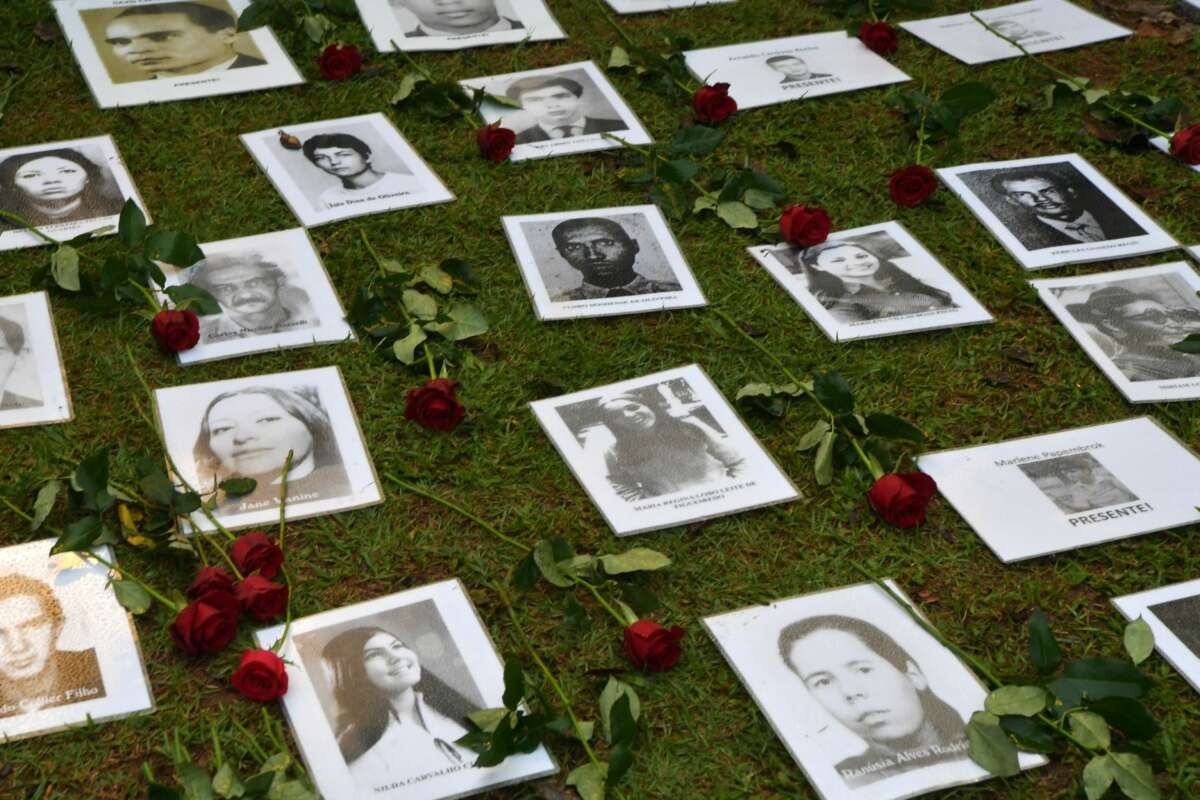Today marks a remarkable milestone in Brazil’s history: the 60th anniversary of the military coup that toppled the government of João Goulart, ushering in more than two decades of authoritarian rule.
The 2014 Truth Commission report stands as Brazil’s sole comprehensive investigation into the atrocities committed during the dictatorship. Its exhaustive 2,000-page report revealed harrowing accounts of human rights violations, including the deaths of over 400 individuals at the hands of the military. It exposed Brazil’s involvement in destabilizing neighboring Latin American nations.
Former Vice President Joe Biden played a symbolic role in supporting the Truth Commission by personally delivering declassified State Department records to former Brazilian President Dilma Rousseff, herself a victim of imprisonment and torture under the regime.

Protest (Credits: Responsible Statecraft)
These records shed light on the dictatorship’s abuses and America’s complicity, highlighting diplomatic cables that downplayed human rights violations as “counterproductive.”
The United States’ backing of the coup illustrated a stark departure from its professed commitment to sovereignty and democracy. Instead, it aligned with anti-communist forces, prioritizing Cold War geopolitics over ethical considerations.
However, this strategic alliance often backfired, as many military regimes pursued agendas that diverged from U.S. interests, leading to strained relations. Brazil’s military rulers followed Washington’s directives, aligning with its foreign policy goals and actively supporting U.S. interventions in Latin America.
Yet, over time, tensions emerged as Brazil sought greater autonomy and pursued policies at odds with U.S. objectives, such as its nuclear program and support for African decolonization efforts.

1964 Military Coup (Credits: The Guardian)
The Carter administration’s human rights-centered approach further strained relations, prompting Brazil to suspend military cooperation in response to U.S. criticism.
Despite brief reconciliations, such as during the Reagan era, Brazil increasingly viewed the U.S. as an unreliable partner, particularly after the Falklands/Malvinas War and the advent of the Reagan Doctrine.
The legacy of U.S.-Brazil relations during the dictatorship era continues to shape bilateral dynamics today. While Brazil remains a critical regional partner, its historical grievances and pursuit of an independent foreign policy underscore the complexities of the relationship.
As calls for transparency grow louder, President Biden has the opportunity to foster trust and collaboration by declassifying remaining documents related to the dictatorship. Such an act would acknowledge past wrongs and strengthen bilateral ties based on shared values of human rights, democracy, and regional stability.























